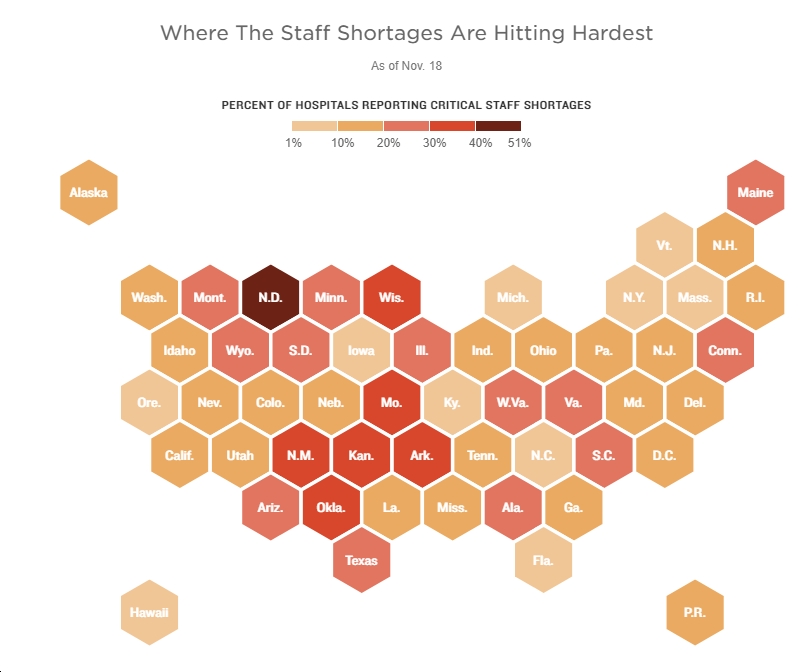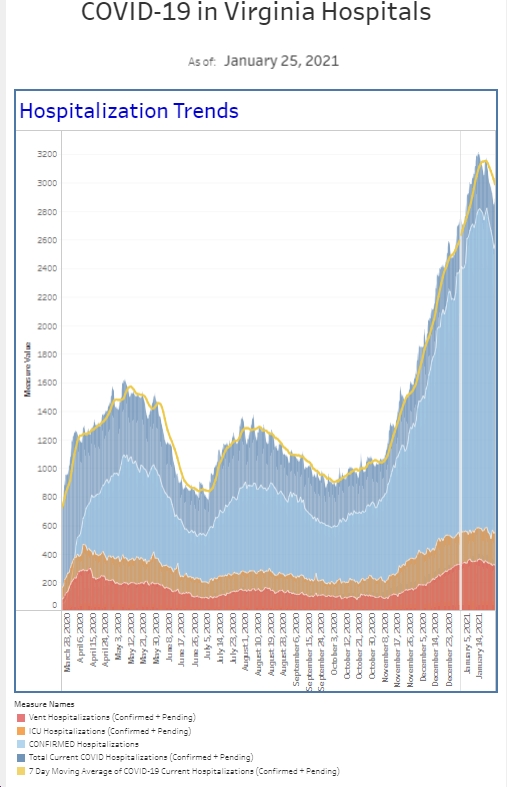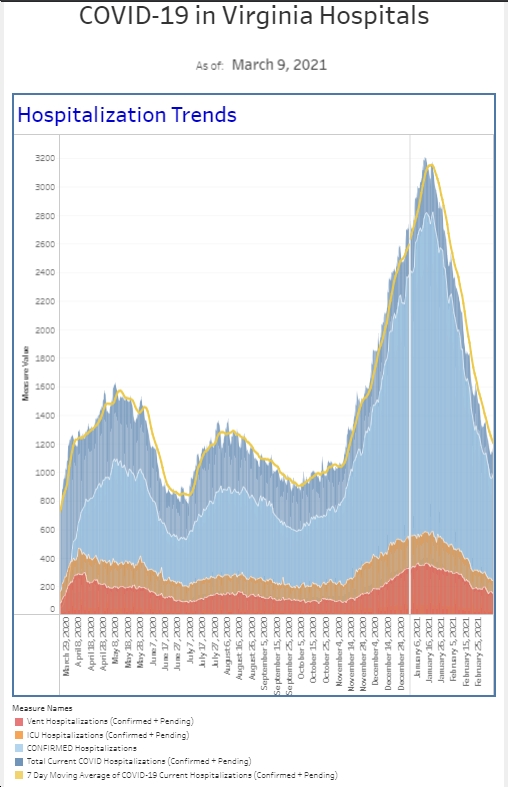Thanks as always to Dr. Mike Silverman, Chair of the Department of Emergency Medicine at the Virginia Hospital Center in Arlington, for these superb updates!
Friday Night Update from the ER in Arlington, VA
There’s still about 300 Americans dying daily with COVID. There has been an uptick in hospitalizations since Thanksgiving and public health officials are concerned that cases will continue to rise as indoor holiday gatherings increase. Although mask mandates are unlikely to occur, public health officials are starting to recommend wearing masks in crowded indoor public spaces like airports and crowded malls. I traveled recently and wore a mask. It’s not hard.
Within VHC, the number of patients we have hospitalized with COVID is similar to last week (and higher than last month). The emergency department remains quite busy. November was among our highest volume months ever, for the most part attributed to Flu and RSV cases. Among our COVID population, we saw another week over week increase in the number of patients testing positive in our “symptomatic” population with a higher percent positive rate than the previous week. That number is 3-4 fold higher than in early November. Among all our testing, we had about twice as many positives as just a few weeks ago.
The CDC reports that “there have been at least 8.7 million illnesses, 78,000 hospitalizations, and 4,500 deaths from flu so far this season,” making this the worst flu season in a decade. Although the number of patients we’re seeing with the flu has declined a bit over the past month, there’s still a lot of flu in the community and I highly recommend getting your flu shot. And fortunately, the flu vaccine this year appears to be a “good match” for the circulating strains, meaning the vaccine works better than average this year.
The FDA approved the bivalent booster for those 6 months to 5 years old. This booster can serve as the 3rd shot after the primary two shot series is complete. This will go to the CDC for review and should be available soon. Please talk to you pediatrician about vaccination. I continue to see a lot of young children that are not vaccinated.
There was an interesting article published in the MMWR by the CDC recently. The authors looked at real world data on the impact of Paxlovid reducing hospitalizations among those with mild to moderate COVID. Although the initial data looked great for Paxlovid, it’s not been aggressively prescribed by many doctors. First, there’s the timing (needs to be within 5 days of symptoms) and the bad taste issues to discuss with patients. Next is the amount of medications that Paxlovid interacts with. For example, if you’re on a statin for cholesterol, the statin needs to be skipped which comes with its own risks. And while it’s easier to make the decision to prescribe for moderate illness, the risk-benefit ratio may not be appropriate for very mild illness. Furthermore, subsequent data after the medication’s release has shown more limited benefit for those <65. While all of us in the ER have prescribed the med, most of have said we wouldn’t want it if we got COVID. With that said, what makes this article interesting is that it better defines the patient populations more likely to benefit from Paxlovid. Authors looked at almost 700,000 patients >18 years old. Across the board, and regardless of previous infection or vaccination status, treatment with Paxlovid resulted in 50% less hospitalizations in the next 30 days when compared to those who didn’t have Paxlovid. In this study, those >65 were more likely to be hospitalized and Paxlovid was beneficial. But Paxlovid was also shown to reduce hospitalization in those 50-64 with one underlying risk factor and those 18-49 with two underlying risk factors. And while a 50% reduction in hospitalization sounds great (it is), the overall risk of hospitalization without Paxlovid was just under 1% to start with. Currently, the Federal Government is picking up the tab for Paxlovid. It looks like the cost of the medication will be passed on to the patient by mid-2023.
Coronavirus is not quite done with us yet.
Science matters. Get vaccinated (or your booster). Keep a mask handy.
Mike

















